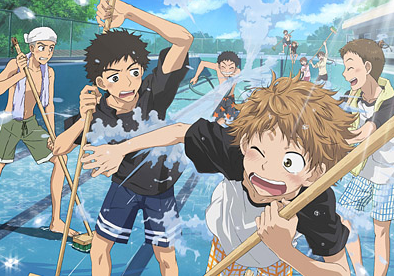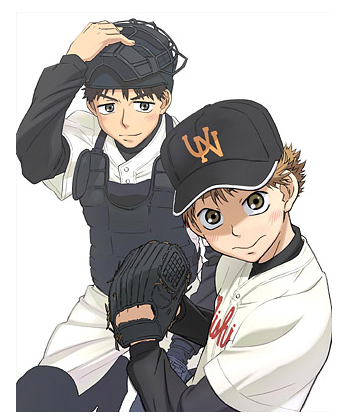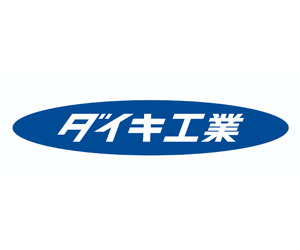As a sports anime, it falls on its face
Ōkiku Furikabutte (Oofuri) follows the same pattern that many successful sports anime currently use:
Step 1: Find a lighthearted approach to intense competition.
Step 2: Form an emotional bond between two players on the same team.
Step 3: Make everything a little gay.
Beyond that structure, Oofuri introduces original ideas about baseball, mental preparation, and teamwork that could’ve lifted it above mediocrity. Unfortunately, the show doesn’t do much very well, and as a sports anime, it falls on its face.
The majority of the show’s weak points, however, fall directly on Mihashi

Oofuri tells the story of Mihashi Ren, a talented and fragile first-year high school pitcher who must overcome his anxiety with the help of his demanding catcher, Abe Takaya. When Abe recognizes Mihashi’s unique skill, he guides him through psychological training that prepares Mihashi to lead the Nishiura baseball club through its first-ever preliminary baseball tournament. Mihashi returns the favor by worshipping Abe’s every decision.
The majority of the show’s weak points, however, fall directly on Mihashi, who has about as much personality as a goldfish in an empty aquarium. He spends the majority of his time fretting about what his teammates think of him, often convulsing into physical helplessness when he can’t overcome his worry. While this sort of debilitating anxiety deserves inspection, Mihashi’s constant anxiety and inability to learn from his mistakes exasperate any sympathy the audience generates for him. His worrying irritates so much that the plot loses momentum every time the scene cuts to him, which thankfully happens less and less as the series goes on.
Mihashi’s teammates address his emotional struggle with caring gestures like constant affirmation, skin-to-skin contact, and open-minded support. Whenever Mihashi needs a boost, Abe presses his palm against Mihashi’s and waits for his to warm. When the team settles into their training camp sleeping quarters, cleanup hitter Tajima Yuuichiro’s restlessness drives everyone into a pillow fight (that Mihashi hides from, of course).
Oofuri’s brand of queer too tame?
While this sort of emotional vulnerability amongst these athletes gets the fujoshi mind rolling, a Western audience already accustomed to open displays of homosexuality in American and British media might find Oofuri’s brand of queer too tame. Far from the shirtless, flirty, and sweaty stories we get from more recent sports anime like Free! or Haikyuu, Oofuri doesn’t dabble into gay themes beyond playful hints and basic human decency. It might be a nice starter kit for anyone experimenting with boys’ love, but Oofuri just isn’t gay enough to warrant any kind-of queer following stateside.

Which is too bad, because behind the show’s halfhearted attempts at queerness lie solid but unfinished ideas about baseball. Shiga Tsuyoshi, math teacher and team advisor, introduces useful mental practice and meditation exercises before essentially disappearing after the first few episodes. The story also explores the team’s supporters’ section more than any other baseball anime, rendering costumes and brass bands and the music and lyrics to popular Koushien songs and chants, but falls short of explaining their ultimate purpose in a baseball tournament. And another thing not seen often in baseball anime: the section of players’ moms gossipping freely about their sons while watching the game. These moms are positively delightful, and the show would’ve improved with an earlier introduction.
Failing to grab attention
But because Oofuri treats its stronger themes as secondary, the audience must treat the show primarily as a sports anime. And as a sports anime, it fails to grab attention. Beyond milking its voiceovers, Oofuri slogs through its character’s in-game thoughts for far longer than it takes actually to complete a baseball game. No, seriously: it takes twelve episodes, over four hours and nearly half the show’s episode count, to get through one game. And you thought an actual baseball game was slow.
The animation remains unobtrusive despite the show’s age, but it doesn’t do enough to impress when masterfully animated contemporaries like Major and Ace of Diamond exist alongside Oofuri. Despite the quality of the action scenes, the show limits its own visual pleasure by spending most of the game time inside the players’ heads. And when the action scenes do pick up, they don’t distinguish themselves from the rest of the show, content with competence and refusing to take any artistic risks.
As a baseball anime with semi-gay themes, Oofuri was probably groundbreaking when it came out ten years ago. But in the years since, progressive themes in sports anime have entered the mainstream, designating Oofuri as archaic as soon as the first episode of Free! came out. So maybe the niche market of people looking for a gay-but-not-too-gay light-hearted baseball anime can enjoy Oofuri. For everyone else, Haikyuu exists. Freaking Yuri!!! on Ice exists. There’s no reason to watch Oofuri.





